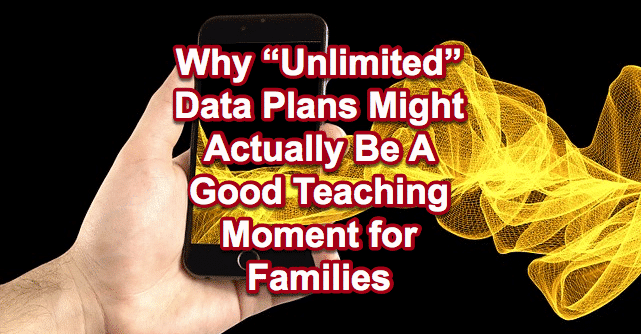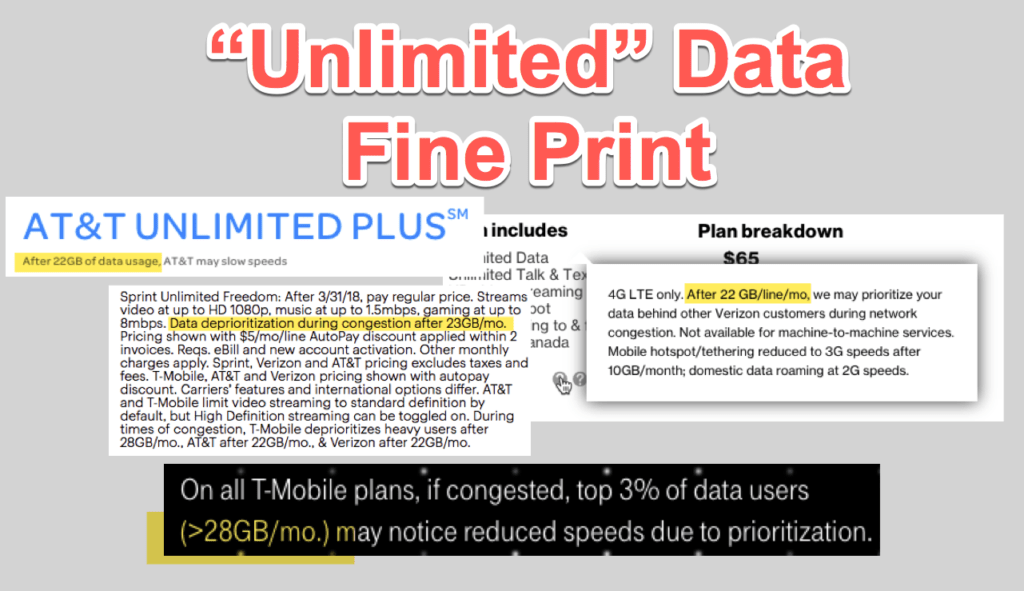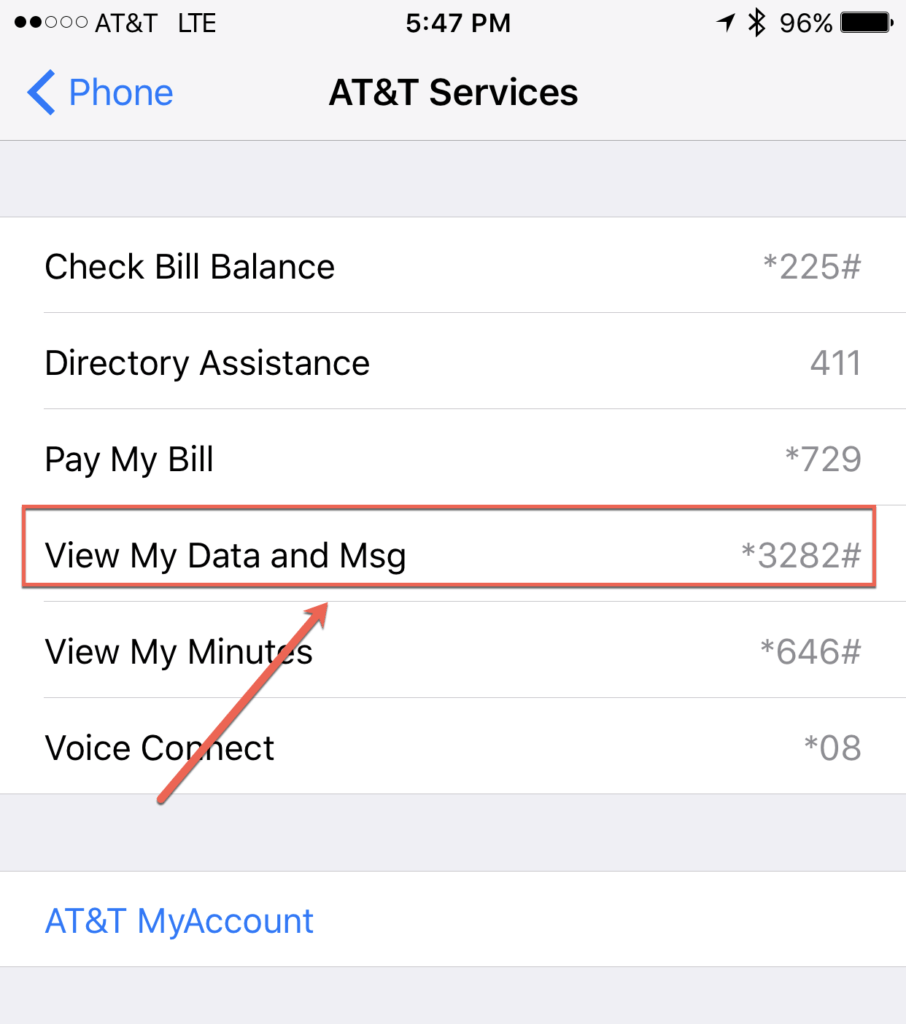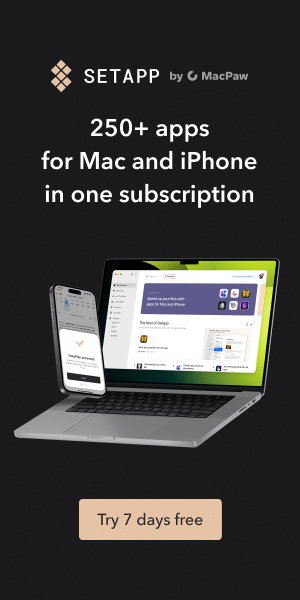For the past year or so, my family has tried to share. It hasn’t worked out so well. What I’m talking about is mobile data sharing. There were always 1-3 members of my family (yeah, I’m usually one of the guilty ones) who gobbled up most of the shared data. But now, with the new “unlimited” data wars upon us, I can shift my parenting lesson from “sharing” to “managing your own actions.” Let me explain.
My family and I were part of one of AT&T’s family data sharing plans. Many mobile carriers have this. Basically, every month the members of your shared plan are given an allocation of pooled mobile data. Some carriers (like AT&T) also allowed for unused data from the previous month to roll into the current month. Our family of 5 had a pretty big pool to draw from — 30 GBs. Last year, we were usually able to roll some data forward each month.
Then the holidays happened and everyone got upgraded iPhones. And that pool of data dried up really quickly. For the past few months, we actually hit overages. At $15 per 1 GB, those added up, especially as we were all basking in the glory of larger screens and better performance.
Around that same time, the “unlimited” data wars between the major carriers started to heat up with prices being pushed down. After reading and re-reading all of the plan details including the fine print, this week I took the plunge and signed up for one of these “unlimited” data plans. Yes, it’s a bit more expensive but having a bit more data consumption room without overage charges tipped the scale in the favor of signing up.
So where is the parenting lesson here?
Well, it’s actually a shift in teaching items.
Sharing didn’t work
It turns out that if you don’t have anything invested in the sharing concept, you kind of tend to ignore it. I kept pretty close tabs on everyone’s data usage. I would nag them when they used too much data or repeatedly reminded everyone to only stream videos or music while on WiFi. In the end, my kids sort of placated me, patted me on the head, and sent me on my way to pay the bill.
I guess everyone didn’t feel that the data was “theirs” so they didn’t really think they were sharing it.
It’s a good lesson to learn. You can share what is yours, but if it is part of a community, it’s a bit more tricky. You have a bit less invested if there are other “owners.” And I’m sure this is a good topic for discussion around conservation. We don’t own the Earth, for example, but rather we share it. So how do you “own up” to your actions? But I digress. Back to the concept of sharing data.
Perhaps if everyone was paying a portion of the bill it might have had different results. I don’t know. If anyone takes this approach, I would be interested in learning how it is going. Please leave a comment.
Management of your own stuff might work
So here is what I’m hypothesizing. First, it is important to lay the groundwork here. The new “unlimited” data plans from any of the carriers aren’t really unlimited (hence why I continue to put that word in quotation marks).
Each carrier either throttles bandwidth after a certain limit is hit, or they deprioritize the traffic behind users who have consumed less data or if the network is congested. This is their way of ensuring that everybody doesn’t go crazy streaming all of the time. And when you think about parenting, limits are very important to set up and adhere to. You wouldn’t, for example, want to have your kid watch unlimited TV or play video games all of the time. Most likely, you set a limit for the number of hours they can watch or play games in a given time period. When they hit that mark, they can no longer watch TV or game. Often though, you don’t restrict the time when they can use up their allocation. Yes, you might have certain times that are off limits (during homework, late at night, etc.), but for the most part, many parents leave some flexibility as to when kids use up their allotted time. If they want to blow it all in one sitting, that is their choice.
It’s this concept called “management.” And it is something important to teach.
Now back to the “unlimited” data example. So, with the new AT&T plan that I signed my family up for, everyone now has “unlimited” data…up to 22 GB per line. After that, the speed is throttled, slowed down, or re-prioritized.
In case you were wondering, here is the current list of limits by major mobile carrier (as of 3/3/17) and what happens after that limit is hit:
- Tmobile – 28 GB (re-prioritized)
- AT&T – 22 GB (throttled)
- Verizon – 22 (re-prioritized)
- Sprint – 23 GB (re-prioritized)
But don’t just take my word for it, here’s the fine print. (And if you are curious about the comparison between these new “unlimited” data plans, I recommend reading C|net’s good recent coverage on these new “unlimited” data plans.)
But this is a good thing. It will be a teaching lesson of self-management. Instead of blaming someone else over too much data usage dragging everyone else down (well, me mainly being the bill payer), there is nobody else to blame except themselves.
If one of my kids now goes YouTube-crazy, and their speed is throttled until the next billing cycle, they can only get mad at themselves. And, hopefully, learn a lesson in management.
I will be sure to give them the tools to see how much data they have used. You don’t even need an app, with AT&T for example, you can send a text and get the results immediately. (Just go to Settings > Phone > AT&T Services and click on “View My Data and Msg” .)
But the management of whether they get throttled or not will be up to them. There won’t be a blame-game with others in the family (or so I hope).
I’ll be interested to see what happens.
I’m almost considering NOT telling my kids they have unlimited data just to see what happens. If they suddenly see their service is really slow, I can show them how much data they used and that they were throttled. AND that they were spending way too much time streaming music or videos.
[easy-tweet tweet=”Can unlimited #data plans actually be a teaching moment for #parents?” user=”HighTechDad” usehashtags=”no”]
I’m also curious to learn how others approach mobile phone usage, data sharing, and kids having cell phones. Do you restrict usage? Do you make them pay for their own service and if so, at what age? Is there a data hog in the family and how do you approach trying to limit them? Please leave a comment.
HTD says: Technology can often be a great tool to teach something important to children. In some cases, a concept like “sharing” might not be the right example, but in this case, it can be pivoted to “management.”






